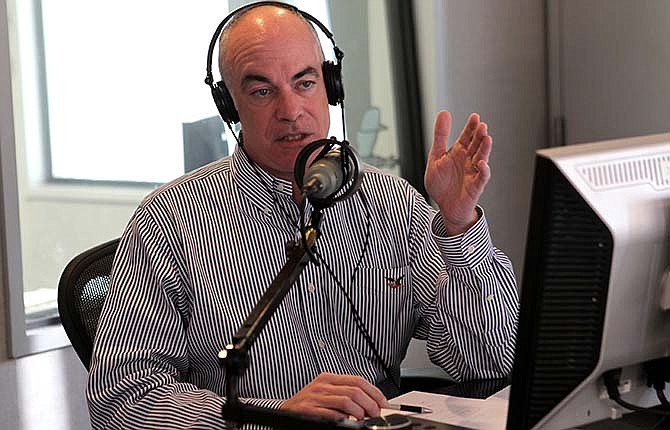Missouri Republican Party Chairman John Hancock not only has no plans to step aside from the job he won three weeks ago, but has promised to improve the party and its operations.
"Our party right now is in debt, and one of my immediate focuses is going to be addressing that situation," Hancock told reporters during a Thursday conference call. "Now is the time to unify our party, not divide it."
The party is already starting from a strong position, he said.
"Our party has a richness of talent. We have a wide range of candidates," he explained. "So one of our challenges is that we're likely to have primaries in 2016 and beyond because we have such a richness of talent."
After winning his re-election bid by 73.31 percent of the total vote over two third-party challengers, state Auditor Tom Schweich at the end of January announced he was running for the Republican nomination for governor in next year's elections.
However, two weeks ago - and a month after officially launching the campaign many had been expecting him to make since before last year's election - Schweich committed suicide.
He was upset by a radio commercial - aired on behalf of a third-party committee called the "Citizens for Fairness in Missouri" during the statewide GOP's Reagan-Lincoln Day meeting in Kansas City three weeks ago - that personally attacked him.
The ad included a comparison of his appearance with "the deputy sheriff of Mayberry," a reference to the late actor Don Knotts' character on "The Andy Griffith Show" in the 1960s; a charge Schweich could "be manipulated;" and, ultimately, if the auditor were the party's nominee for governor next year, "We will quickly squash him like a bug that he is."
Some in the media, and his supporters, also have said the auditor was upset with a whisper campaign that said Schweich was Jewish - and Hancock was behind the campaign, to hurt Schweich's chances of raising money from Republican supporters who also are evangelical Christians.
Schweich was Episcopalian, although his grandfather was Jewish.
Hancock has denied any campaign to block Schweich's candidacy.
"To date, no one has come forward with any evidence of a whisper campaign, because there was no whisper campaign," Hancock said. "The Republican Party is not a party of bigotry.
"The Republican Party is a party of opportunity for all Americans, regardless of their station in life."
A week ago, Paul Hamby, a Maysville business owner who has been active in some party campaigns, told the News Tribune that Hancock should leave the GOP chairmanship because of his history as a consultant, which would help favor some candidates over others.
However, Hancock said Thursday, "Anyone who would become the chairman of a political party is someone who has been actively involved in politics for some period of time, and that means they have volunteered or worked for candidates who were running in primaries.
"The truth of this matter is that I had worked for both Catherine Hanaway and Tom Schweich previously."
Hancock said, while campaigning within the Republican Party to be its new chairman, "I made clear to the state committee (that) neither I nor my firm would get involved in any Republican primaries, because that was a concern - a legitimate one - that was expressed by some members of the committee.
"And I made it clear that I would not participate in endorsing or working for or assisting one candidate over another in any Republican primary. ... Neither I nor the party is going to get involved in primaries."
As for the concerns about negative campaigning and attack ads like the one that ran three weeks ago, Hancock said, "I think you need to make a distinction between negative campaigning and personal attacks.
"Negative campaigning - which is contrasting someone's rhetoric and their job with yourself - is an important part of political campaigns, and it's a necessary part of the conversation, so that voters have contact, can make decisions and can make comparisons among various candidates running for office.
"I think it would be a mistake if we ended the practice of drawing comparisons between one candidate and another."
He agreed some campaigns in Missouri and around the country "have crossed the line and maliciously maligned someone in a personal manner - and that is as old as the Republic. ... I have always found those kinds of personal attacks to be counter-productive to the public discourse, and not helpful in the context of elections."
However, the U.S. Constitution's First Amendment, protecting the right to free speech, makes controlling those ads difficult, Hancock said.
"In a free Republic, people need to be free to say whatever they need to say," he explained, "and it is the public's duty to reject those ads that do cross that line - and not vote for people who are putting those kinds of messages out."

